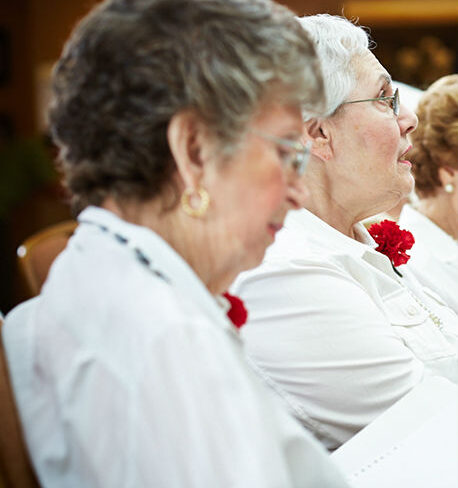Seasonal Affective Disorder, also known as SAD, can affect people of any age. From children to seniors, SAD leaves people feeling blue. It occurs most often in the winter months following the hustle and bustle of the holiday season. Knowing how to spot the signs that you might need to intervene and get help for a senior loved one is important.
Symptoms of Seasonal Affective Disorder in Older Adults
If the senior you love always seems a little down during the winter months, it might be more than just the post-holiday blues. The long grey days of winter and lack of exposure to sunlight may actually be the culprit.
A few of the common signs that might indicate an aging parent or older loved one is battling more than a case of cabin fever include:
- Sleepiness and fatigue
- Feelings of sadness that don’t go away
- Lethargy or a loss of energy
- Problems sleeping including both insomnia and sleeping too much
- Unintended weight gain or weight loss
- Feeling worthless
- Withdrawing from favorite groups, hobbies and organizations
- Difficulty concentrating and maintaining attention span
- Change in personal hygiene
- Short-tempered and irritable
- Tearful or weepy
If the senior you love is exhibiting one or more of the symptoms listed above, it is likely time to talk with their primary care physician. He or she is the best one to be able to decide if it is the post-holiday blues or something more serious that requires professional medical treatment.
Helping a Senior Overcome Seasonal Affective Disorder
There are steps you can take each winter to prevent yourself or a senior loved one from developing SAD. They include:
- Avoid alcohol or limit intake to just one or two glasses a week
- Eliminate sugary foods, sodas and sweets from your daily diet
- Commit to 30 minutes of daily exercise, like walking or swimming
- Adopt a mindful form of exercise, such as chair yoga or Pilates
- Eat a healthy diet consisting of lean proteins, fruits and vegetables
- Spend time with family, friends and loved ones on a regular basis
Finally, mental health professionals often recommend a device referred to as a “light box.” It helps people suffering from the winter blues by decreasing the amount of melatonin in the body. Less melatonin helps you feel less fatigued. Talk with your primary care physician to see if this might be an option for you or the older adult you are a caregiver for.
Contact Us Today
"*" indicates required fields

